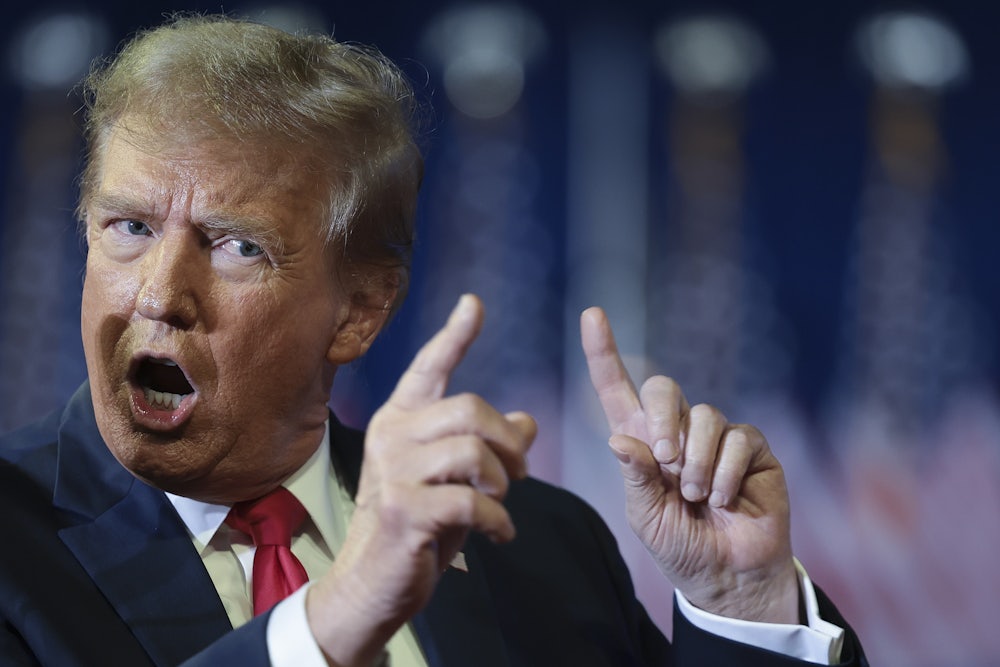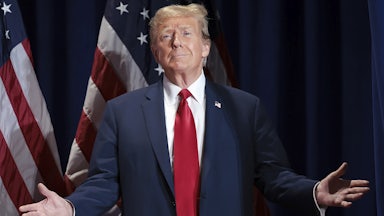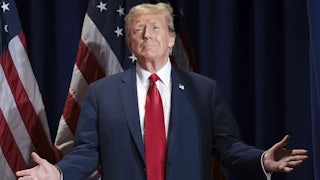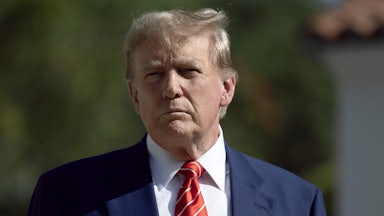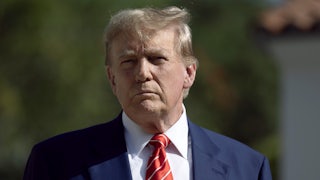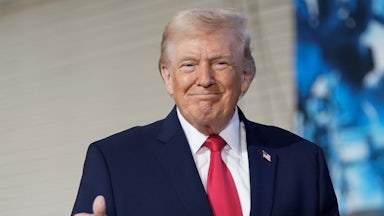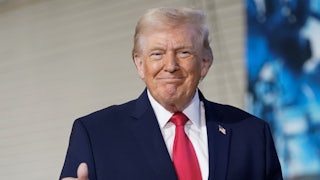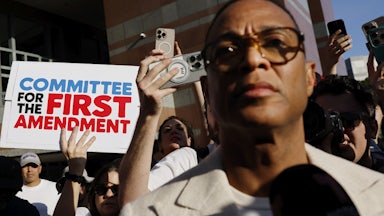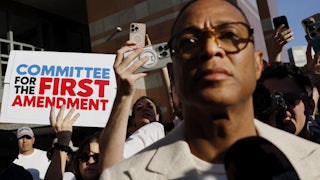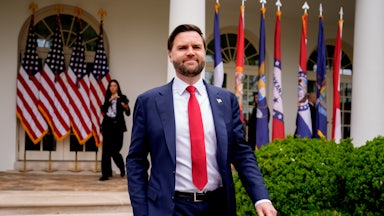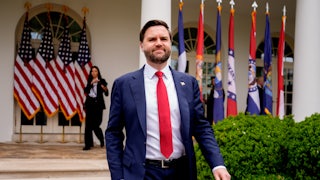Is New York State treating Donald Trump differently from other real estate scofflaws in requiring him to disgorge $454 million by Monday? Yes. Would another such person who lied to banks and insurance companies about the value of his real estate holdings become the target of a major investigation by the state attorney general? Probably not. Was Judge Arthur F. Engeron, in handing down last month his $454 million judgment against Trump, trying to banish Trump from New York’s real estate industry? Possibly so.
To Trump’s defenders, this is where discussion ends. On Thursday, one of Trump’s lawyers, Clifford Robert, said in a letter to New York’s appellate division that Trump is being pressured to sell properties at fire-sale prices to make bond. This, according to Roberts, is “the definition of an unconstitutional Excessive Fine and a Taking” because, should Trump win on appeal, he’ll have suffered “harm that cannot be repaired.” National Review’s Rich Lowry said on Fox Business that New York State Attorney General “Tish James has used the power of the state to attempt, with some success so far, to destroy his business that he’s built over decades and humiliate him personally.” Even my friend Ruth Marcus of The Washington Post, who’s written that she is “not at all confident” the country can survive another Trump term, asks: “Is it fair to require Trump to post a bond of this magnitude to be able to appeal the judgment against him?”
Yes. It’s fair to treat Trump differently because Trump demands to be treated differently. Time and again, civil society has sought to treat Trump just like everyone else, only to have Trump answer, through his actions, that the rules don’t apply to him. What usually happens is that whoever is entangled with Trump—be they business associate or government enforcer or fellow politician—will shrug and slink off, mindful that Trump is too rich and, for the past eight years, too politically powerful to take on.
On rare occasions, though—and for what it’s worth, they’re becoming less rare—Trump’s adversary will press ahead, undeterred. When that happens, Trump uses his money and power to escalate the conflict as much as possible, prompting his adversary to escalate too—at which point Trump will whine about how he’s being treated differently from everyone else. “I dare you” begets “How dare you?” The clinical term for this behavior, I am not the first to observe, is Antisocial Personality Disorder. The colloquial term is “bullying.”
Trump’s inclination to flout every conceivable norm—from looking directly at the sun during an eclipse to withholding Ukraine aid to force its president to investigate Joe and Hunter Biden to encouraging rioters to interrupt the counting of electoral ballots—follows this pattern. The latter two incidents led the House of Representatives to impeach Trump, twice, in the second instance after he’d already lost reelection. (In both cases a Republican Senate declined to convict.) Impeaching a president even once is unusual; to do so twice was unprecedented. You might even think it was unreasonable (and many at the time said it was). But Trump only became more reckless after the first impeachment, leaving the House no choice but to impeach him a second time. Was it unfairly partisan? Please. It was the most bipartisan vote to impeach a president in United States history.
Similarly, it might seem like overkill to make Trump fight off four indictments related to his former presidency even as he campaigns for a second term. No other president has been indicted even once after serving in that high office. Trump claims persecution, but these cases too have all arisen from Trump’s behaving as though the rules did not apply to him, and daring authorities to act otherwise.
Most of the facts in these cases are not in dispute. Trump arranged for two former lovers to be paid off in the final days of his campaign, a violation of campaign law for which his lawyer, Michael Cohen, served a three-year sentence. Trump told Georgia’s secretary of state to “find 11,780 votes” to put him over the top in the 2020 election. Trump ordered Vice President Mike Pence not to count electoral ballots that made Joe Biden the winner, telling Pence that would be a “career killer.” Trump took classified and other documents with him when he retired to Florida, which wasn’t perhaps unusual, but when the National Archives told him to give them back, Trump refused, which was very unusual. This last is perhaps the most perfect example of Trump’s demanding special treatment and then, when denied it, playing the victim. In the end the FBI had to raid Mar-a-Lago to get the documents back, prompting Trump to complain that “these are dark times for our Nation.… Nothing like this has ever happened to a President of the United States before.” He was right; it hadn’t.
Trump’s legal troubles right now in New York State fit this pattern. Indeed, Trump has a history of getting nailed for fraud by attorneys general in New York. There was the Trump University fraud case, which settled for $25 million in 2016, and the Trump Foundation fraud case in 2018, which settled for $2 million. Judge Engoron referenced these cases in his opinion (“This is not Defendants’ first rodeo”), and factored them into his $454 judgment. He might also have mentioned a 2010 lawsuit involving the attorney general over false information that Donald Jr. and Ivanka Trump furnished to the purchasers of condominiums in Trump SoHo. That case, which was settled for an undisclosed sum, very nearly led to criminal indictments for the Trump children (who were foolish enough to discuss their deception in emails).
Trump is so very deep in hock to New York State because, within that jurisdiction, he is a flagrant and repeat offender. He might well have got hit with a $454 penalty even if he’d never been president. Trump’s visibility since he entered politics made his financial misbehavior impossible to ignore, but it wasn’t all that easy to ignore before. If Attorney General Letitia James follows through on her preparations to put a lien on the Trump National Golf Club Westchester in Briarcliff Manor and/or the Trump Seven Springs development in Bedford—both a short drive from Bill and Hillary Clinton’s place in Chappaqua—then Donald Trump will once again suffer a humiliation that no former president in recent memory has had to endure. Trump wanted to be exceptional? OK, he’s exceptional.
